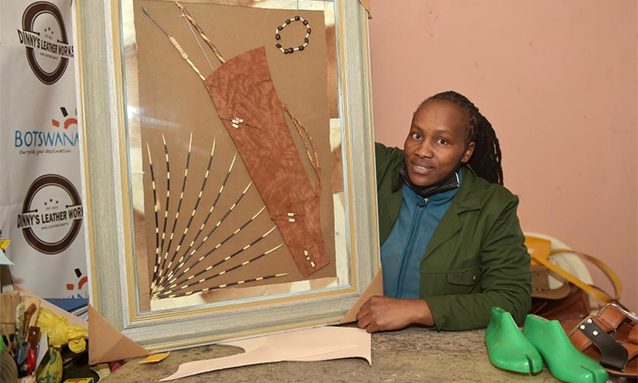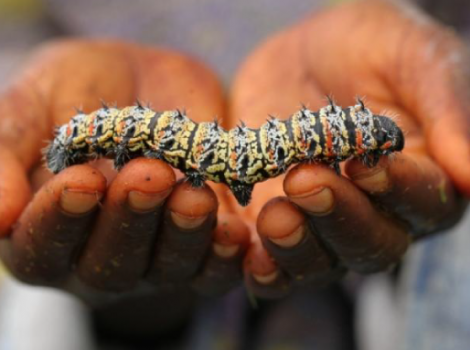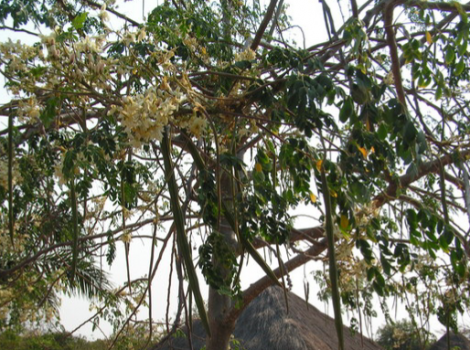
27 July 2023
In the vast landscapes of Botswana, where the cattle population is estimated to be at 2.1 million, the country has an abundance of raw hides and skins locally. One small business owner has discovered a niche in the market in the production of finished leather products.
Based in Palapye, about 270 km from Gaborone, the capital of Botswana, Dineo Gobatilwe, a 34-year-old mother of two, operates a leather works company called Dinny Leather Works that produces goods such as school shoes, sandals, belts, hats, and leather frames.
In 2014, the company was created with government financial support to the tunes of 98,000 Botswana pula (7,504 U.S. dollars). She bought equipment from China and has deployed the machinery for manufacturing since the company’s inception.
In an interview with Xinhua, Gobatilwe explained that she chose to pursue leather works due to a lack of employment opportunities, saying she noticed a gap in the leather industry while everyone else focused on fashion design.
“I wanted to be unique because only Pilane leatherworks and the Basarwa tribe were involved in making traditional leather products, so I decided to combine Pilane and Basarwa skills to make modern products,” she said.
To make better products, Gobatilwe uses vegetable-tanned leather, which is known for its natural feel, sweet scent, patina over time, and toughness. When making her products, she picks the right leather without cracks,
“That’s why my products look quality and last longer,” explained the Limkokwing Fashion Design degree graduate. Limkokwing University is a private university with a presence across Africa, Europe, and Asia.
The company is able to sustain itself through a partnership with Palapye District Council, through which she provides over 500 pairs of shoes to orphans and less privileged students in the Palapye region and surrounding areas. She further stated that other customers are from local traditional groups and the public.
Currently, the company employs three workers. Her secret to surviving in a rather difficult industry? Dineo says passion and focus are important, whether you have money or not. Her advice to others in the industry is to have a long-term plan and patience.
While the local market is promising, Gobatilwe already has her sights set on the international market.
“I’ve had the opportunity to go to Dubai to exhibit my products; I also work with the Botswana Investment and Trade Centre and have participated in their workshops,” she said.
Gobatilwe has received support from the Visual Arts Office within the Ministry of Youth, Gender, Sports, and Culture. Her company also attended the US-Africa business forum in Botswana earlier this month.
She, however, said that running a leather company in Botswana is not without difficulties. Even though the country produces about 300,000 hides each year, it still does not have the means to process its hides into fine leather.
The country sells 50% of its raw hides and 100% of its raw skins, with half of the hides given the wet-blue treatment( moist chrome-tanned leather), according to the Botswana Meat Commission. Wet Blue refers to moist chrome-tanned leather.
In this phase, the leather is tanned, but neither dried, dyed nor finished. The bluish colouring is produced by the chrome tanning agent (Chromium (III) oxide), which is blue and is contained in the leather after tanning.
Despite the challenges, Gobatilwe has effectively capitalised on the tremendous opportunity presented by the local cattle and leather industries and helped to contribute to the expansion of Botswana’s economy by seizing the potential in both local and export markets. Gobatilwe serves as an example for other small business owners trying to discover unexplored markets to enhance their chances of success.
The Botswana government has put in place initiatives towards helping small enterprises in this industry, including financial assistance, training programmes, and market access assistance. Entrepreneurs receive advice on industry best practices, marketing techniques, and export laws by collaborating with government organisations, according to the Ministry of Investment Trade and Industry.
Botswana intends to establish a thriving leather cluster, beginning with the construction of a leather park in Lobatse, a town 72 km southeast of Gaborone, the ministry said.
Source: http://english.news.cn/20230727/71e9374371404376b992eb1525336d9c/c.html



